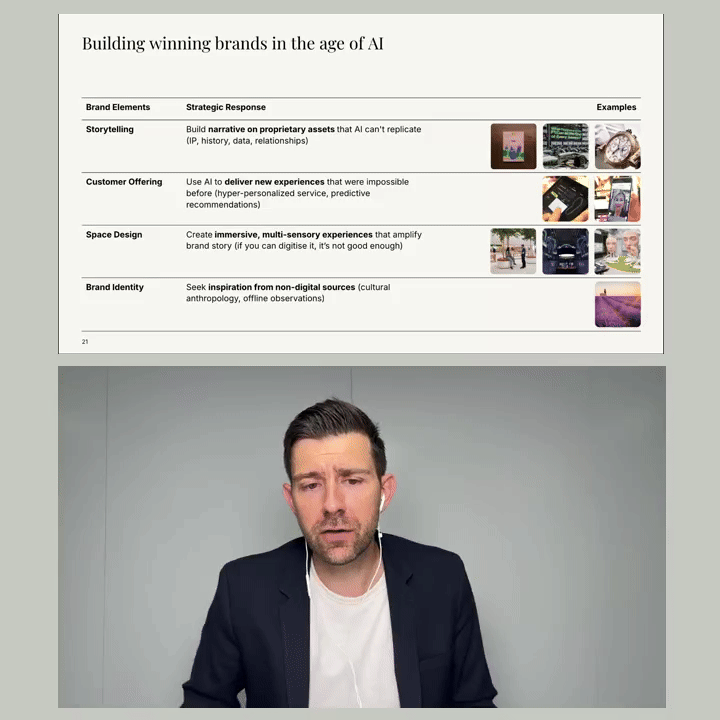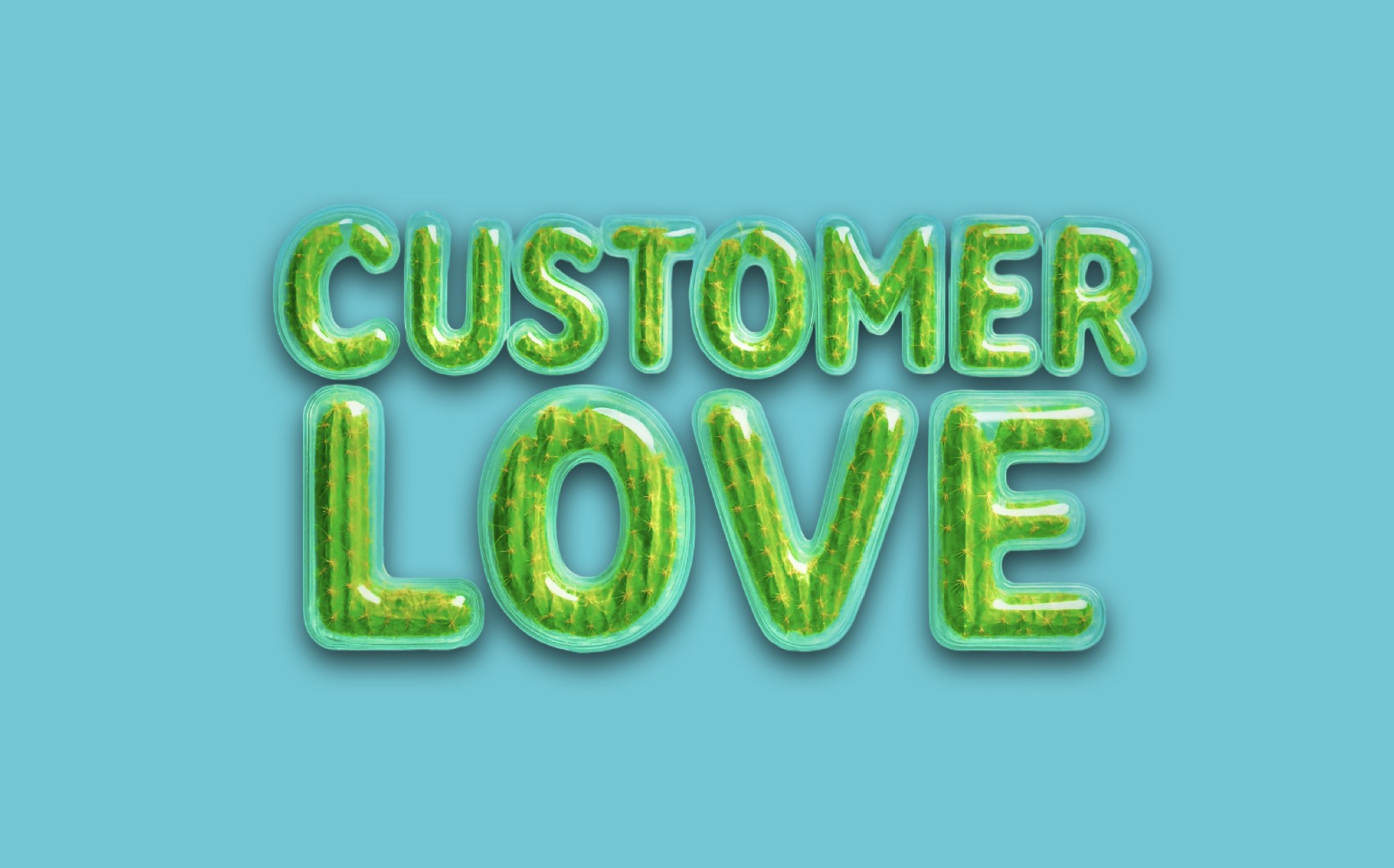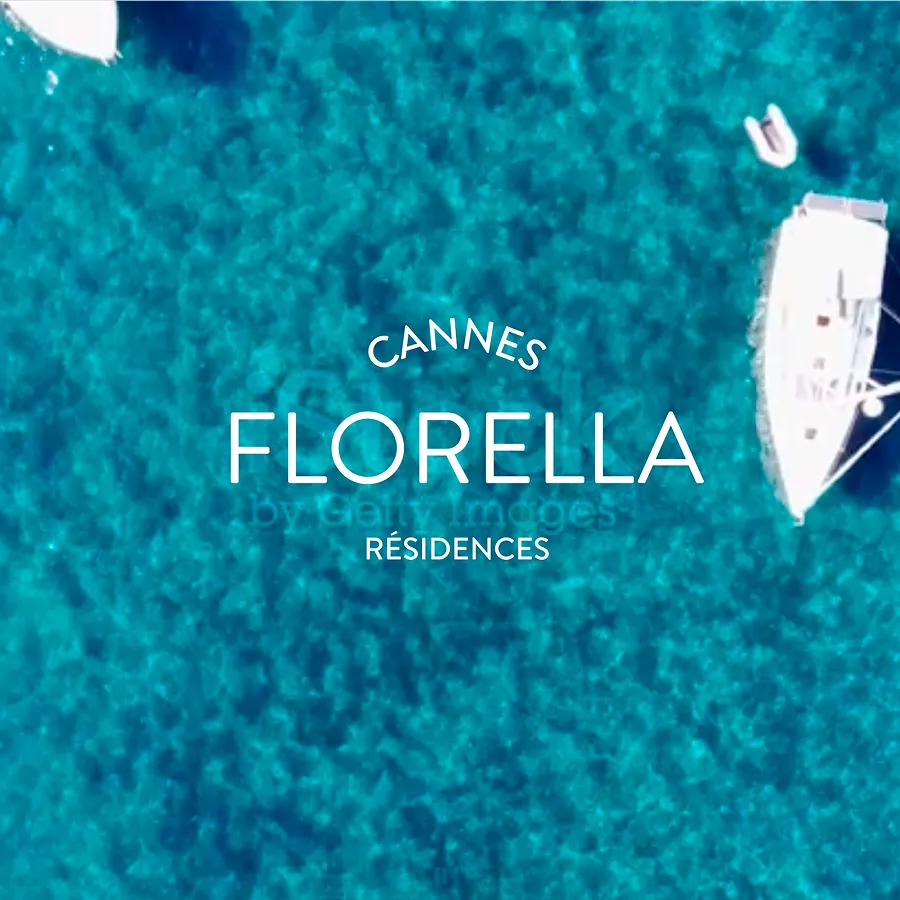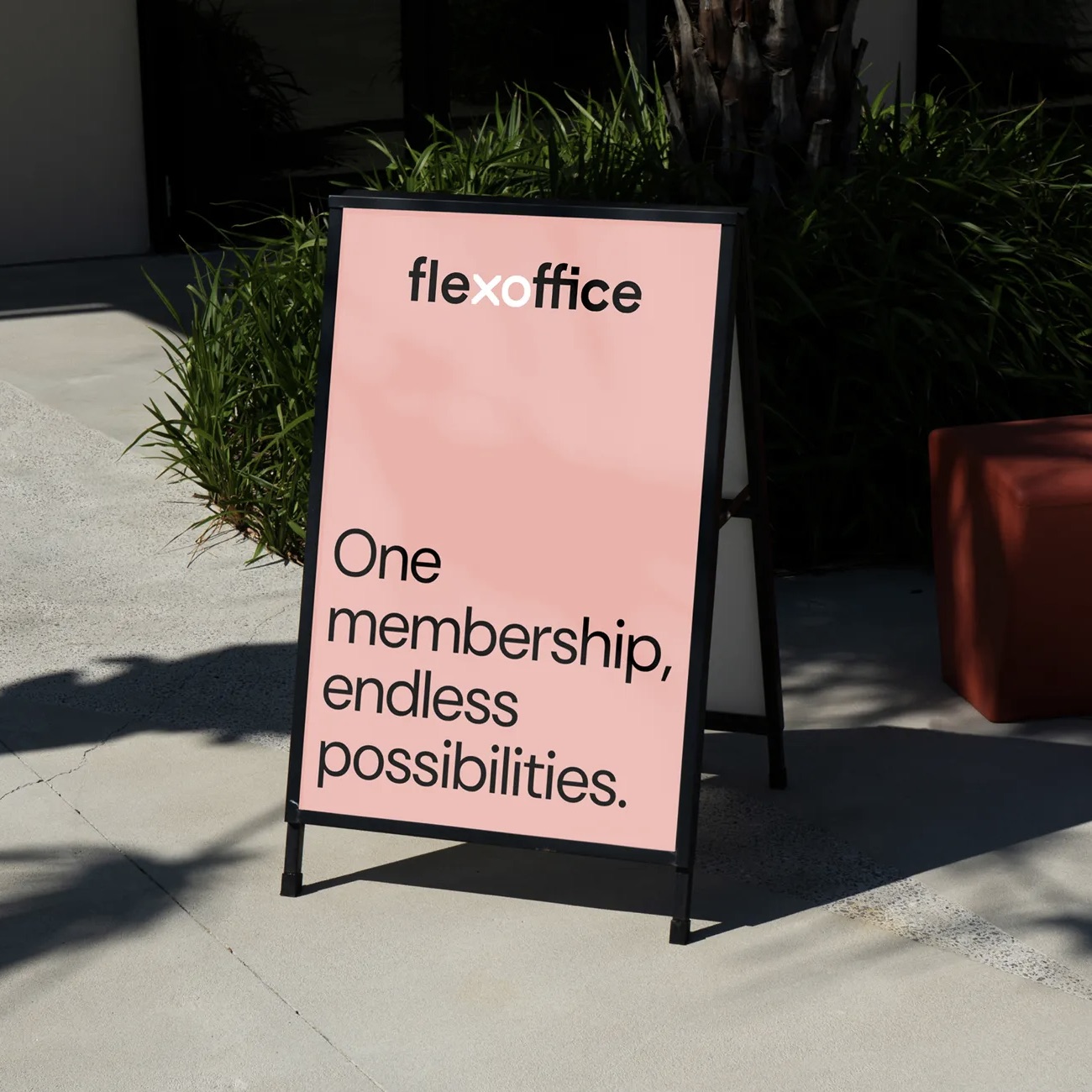Naming Your Brand: 3 Principles to Get It Right
Naming isn’t luck. It’s a balance of legal clarity, marketing strength, and emotional resonance. This is how we, at Creative Supply, approach the art and science of naming.

1. The Legal Pillar: Securing Your Future
Before you fall in love with a name, you must confirm its legal viability. A great name that you can't own is useless. This step is about due diligence, not just creativity.
- Trademark Availability: This is the most critical first step. We conduct thorough searches to ensure the name, or something confusingly similar, isn't already trademarked in your relevant business categories and countries. A common mistake is to only check for exact matches, ignoring potential infringement issues.
- Misleading or Deceptive: Your brand name must accurately represent your products or services. Naming a water brand "Pure Air" could be risky, unless you build your brand identity around providing a "pure air" experience when using the product, and communicate this effectively throughout your branding and marketing. So your brand name shouldn't promise something it can't deliver, as this can lead to legal issues and erode customer trust.

Naming Your Brand: 3 Principles to Get It Right - Creative Supply, Branding & Experience Design Agency
2. The Marketing Pillar: Building a Brand that Sticks
A brand name is your first handshake with a customer. It needs to be effective in all marketing contexts, from a URL to a social media handle. We focus on names that are built for communication and recall.
- Brand Representation: Does the name align with your brand's core values and identity? A name like "Vivid" works for a creative studio, but might feel out of place for a financial firm. The name should hint at your brand's essence without being overly descriptive or generic.
- Ease of Use: A name should be simple to write, pronounce, and remember. Complex or overly long names can lead to misspellings, confusion, and make it hard for people to find you online. Think of names like "Apple", "UGG", "Goop", "Drunk Elephant", "Common Projects", "Burger King" — punchy and easy to recall.
- Digital Presence: We check for domain availability and social media handles. A name is only as strong as its digital footprint. Having a consistent handle across platforms is key to building a cohesive brand.

3. The Emotional Pillar: Resonating with Your Stakeholders
A brand name needs to be more than just functional. It has to evoke feeling and gain buy-in. This is where the human element is vital.
- Stakeholder Resonance: Your brand name must resonate with your customer profile, your board members, and your internal teams. If your board or employees don't feel a connection to the name, it's a hard sell from the start. We take a step-by-step approach to the naming process, running workshops to ensure everyone is happy with the final brand name and that they are fully on board.
- Negative Connotations: We vet names for negative meanings, double entendres, or slang in other languages or cultures. A name that sounds great in English could be a curse word elsewhere. This is a crucial step for any brand with global ambitions.
- Story & Meaning: The best brand names often have a story behind them. A name that connects to the founder's journey, the company's mission, or a meaningful concept is easier to communicate and builds a stronger emotional connection with customers. A name like "Airbnb" tells a story of its service — "Air Bed & Breakfast" — in a concise way.

Our Real-World Naming Examples
We've applied these principles to countless projects. Here are a few examples of how our creative team helped name businesses by connecting their business purpose, brand identity, and target audience.
- Mona: A lakeside hotel in Montreux needed to rebrand itself, including finding a meaningful brand name. While digging through the hotel's archives, we spotted the name "Mona", which comes from "monasteriolo", the ancient name for the city, giving the brand a deep connection to its location's history. It also sounds like a boat name, reinforcing the brand's positioning "a cruise without leaving the shore", which we developed prior to naming.
- Nuage: For a hotel in Paris, we sought a brand name that would convey slow luxury and serenity, as per the brand positioning we developed. "Nuage", the French word for "cloud", perfectly captures this feeling, positioning the hotel as an urban retreat from the city's hustle. The name is both poetic and memorable, speaking directly to its brand identity.
- Bluemorrow: The foresight and innovation company in Zurich, needed a brand name that represented its forward-thinking mission. We named the company "Bluemorrow" to combine the colour of "blue sky thinking" with the concept of "tomorrow", creating a playful yet institutional name. It tells clients that the company offers new horizons and growth patterns.
- French Theory: As part of our branding project, we positioned a lifestyle hotel in Paris as a cultural hub for the city's creative scene. The name "French Theory" was inspired by a philosophical movement that started in the hotel's neighbourhood, giving it an authentic and intellectual foundation — exactly what we wanted when developing the brand.
- Doppl: The bioscience company in Lausanne, needed a brand name that was modern, scientific, and hinted at its purpose. "Doppl" is a short, memorable name that is a nod to the "Doppler effect" and the idea of sound waves and movement. The name is simple, yet sophisticated, and feels right for a tech and science brand.
Final Thoughts
Your brand name is a foundational asset. It’s a commitment you live with, so the process deserves a meticulous, multi-faceted approach. By vetting a name against these 3 pillars — legal, marketing, and emotional — you build a brand that is not only memorable but also defensible and future-proof. Don't leave this critical decision to chance. Start your naming journey with a strategic framework and the right support to build a brand that lasts.
Ready to Find Your Iconic Brand Name?
At Creative Supply, we guide founders and leaders through the critical naming process, ensuring your brand name becomes a powerful business asset.
👉 Contact us to start your naming journey and turn your vision into an iconic brand.
Naming Your Brand: 3 Principles to Get It Right

1. The Legal Pillar: Securing Your Future
Before you fall in love with a name, you must confirm its legal viability. A great name that you can't own is useless. This step is about due diligence, not just creativity.
- Trademark Availability: This is the most critical first step. We conduct thorough searches to ensure the name, or something confusingly similar, isn't already trademarked in your relevant business categories and countries. A common mistake is to only check for exact matches, ignoring potential infringement issues.
- Misleading or Deceptive: Your brand name must accurately represent your products or services. Naming a water brand "Pure Air" could be risky, unless you build your brand identity around providing a "pure air" experience when using the product, and communicate this effectively throughout your branding and marketing. So your brand name shouldn't promise something it can't deliver, as this can lead to legal issues and erode customer trust.

Naming Your Brand: 3 Principles to Get It Right - Creative Supply, Branding & Experience Design Agency
2. The Marketing Pillar: Building a Brand that Sticks
A brand name is your first handshake with a customer. It needs to be effective in all marketing contexts, from a URL to a social media handle. We focus on names that are built for communication and recall.
- Brand Representation: Does the name align with your brand's core values and identity? A name like "Vivid" works for a creative studio, but might feel out of place for a financial firm. The name should hint at your brand's essence without being overly descriptive or generic.
- Ease of Use: A name should be simple to write, pronounce, and remember. Complex or overly long names can lead to misspellings, confusion, and make it hard for people to find you online. Think of names like "Apple", "UGG", "Goop", "Drunk Elephant", "Common Projects", "Burger King" — punchy and easy to recall.
- Digital Presence: We check for domain availability and social media handles. A name is only as strong as its digital footprint. Having a consistent handle across platforms is key to building a cohesive brand.

3. The Emotional Pillar: Resonating with Your Stakeholders
A brand name needs to be more than just functional. It has to evoke feeling and gain buy-in. This is where the human element is vital.
- Stakeholder Resonance: Your brand name must resonate with your customer profile, your board members, and your internal teams. If your board or employees don't feel a connection to the name, it's a hard sell from the start. We take a step-by-step approach to the naming process, running workshops to ensure everyone is happy with the final brand name and that they are fully on board.
- Negative Connotations: We vet names for negative meanings, double entendres, or slang in other languages or cultures. A name that sounds great in English could be a curse word elsewhere. This is a crucial step for any brand with global ambitions.
- Story & Meaning: The best brand names often have a story behind them. A name that connects to the founder's journey, the company's mission, or a meaningful concept is easier to communicate and builds a stronger emotional connection with customers. A name like "Airbnb" tells a story of its service — "Air Bed & Breakfast" — in a concise way.

Our Real-World Naming Examples
We've applied these principles to countless projects. Here are a few examples of how our creative team helped name businesses by connecting their business purpose, brand identity, and target audience.
- Mona: A lakeside hotel in Montreux needed to rebrand itself, including finding a meaningful brand name. While digging through the hotel's archives, we spotted the name "Mona", which comes from "monasteriolo", the ancient name for the city, giving the brand a deep connection to its location's history. It also sounds like a boat name, reinforcing the brand's positioning "a cruise without leaving the shore", which we developed prior to naming.
- Nuage: For a hotel in Paris, we sought a brand name that would convey slow luxury and serenity, as per the brand positioning we developed. "Nuage", the French word for "cloud", perfectly captures this feeling, positioning the hotel as an urban retreat from the city's hustle. The name is both poetic and memorable, speaking directly to its brand identity.
- Bluemorrow: The foresight and innovation company in Zurich, needed a brand name that represented its forward-thinking mission. We named the company "Bluemorrow" to combine the colour of "blue sky thinking" with the concept of "tomorrow", creating a playful yet institutional name. It tells clients that the company offers new horizons and growth patterns.
- French Theory: As part of our branding project, we positioned a lifestyle hotel in Paris as a cultural hub for the city's creative scene. The name "French Theory" was inspired by a philosophical movement that started in the hotel's neighbourhood, giving it an authentic and intellectual foundation — exactly what we wanted when developing the brand.
- Doppl: The bioscience company in Lausanne, needed a brand name that was modern, scientific, and hinted at its purpose. "Doppl" is a short, memorable name that is a nod to the "Doppler effect" and the idea of sound waves and movement. The name is simple, yet sophisticated, and feels right for a tech and science brand.
Final Thoughts
Your brand name is a foundational asset. It’s a commitment you live with, so the process deserves a meticulous, multi-faceted approach. By vetting a name against these 3 pillars — legal, marketing, and emotional — you build a brand that is not only memorable but also defensible and future-proof. Don't leave this critical decision to chance. Start your naming journey with a strategic framework and the right support to build a brand that lasts.
Ready to Find Your Iconic Brand Name?
At Creative Supply, we guide founders and leaders through the critical naming process, ensuring your brand name becomes a powerful business asset.
👉 Contact us to start your naming journey and turn your vision into an iconic brand.


Naming Your Brand: 3 Principles to Get It Right
Naming isn’t luck. It’s a balance of legal clarity, marketing strength, and emotional resonance. This is how we, at Creative Supply, approach the art and science of naming.
1. The Legal Pillar: Securing Your Future
Before you fall in love with a name, you must confirm its legal viability. A great name that you can't own is useless. This step is about due diligence, not just creativity.
- Trademark Availability: This is the most critical first step. We conduct thorough searches to ensure the name, or something confusingly similar, isn't already trademarked in your relevant business categories and countries. A common mistake is to only check for exact matches, ignoring potential infringement issues.
- Misleading or Deceptive: Your brand name must accurately represent your products or services. Naming a water brand "Pure Air" could be risky, unless you build your brand identity around providing a "pure air" experience when using the product, and communicate this effectively throughout your branding and marketing. So your brand name shouldn't promise something it can't deliver, as this can lead to legal issues and erode customer trust.

Naming Your Brand: 3 Principles to Get It Right - Creative Supply, Branding & Experience Design Agency
2. The Marketing Pillar: Building a Brand that Sticks
A brand name is your first handshake with a customer. It needs to be effective in all marketing contexts, from a URL to a social media handle. We focus on names that are built for communication and recall.
- Brand Representation: Does the name align with your brand's core values and identity? A name like "Vivid" works for a creative studio, but might feel out of place for a financial firm. The name should hint at your brand's essence without being overly descriptive or generic.
- Ease of Use: A name should be simple to write, pronounce, and remember. Complex or overly long names can lead to misspellings, confusion, and make it hard for people to find you online. Think of names like "Apple", "UGG", "Goop", "Drunk Elephant", "Common Projects", "Burger King" — punchy and easy to recall.
- Digital Presence: We check for domain availability and social media handles. A name is only as strong as its digital footprint. Having a consistent handle across platforms is key to building a cohesive brand.

3. The Emotional Pillar: Resonating with Your Stakeholders
A brand name needs to be more than just functional. It has to evoke feeling and gain buy-in. This is where the human element is vital.
- Stakeholder Resonance: Your brand name must resonate with your customer profile, your board members, and your internal teams. If your board or employees don't feel a connection to the name, it's a hard sell from the start. We take a step-by-step approach to the naming process, running workshops to ensure everyone is happy with the final brand name and that they are fully on board.
- Negative Connotations: We vet names for negative meanings, double entendres, or slang in other languages or cultures. A name that sounds great in English could be a curse word elsewhere. This is a crucial step for any brand with global ambitions.
- Story & Meaning: The best brand names often have a story behind them. A name that connects to the founder's journey, the company's mission, or a meaningful concept is easier to communicate and builds a stronger emotional connection with customers. A name like "Airbnb" tells a story of its service — "Air Bed & Breakfast" — in a concise way.

Our Real-World Naming Examples
We've applied these principles to countless projects. Here are a few examples of how our creative team helped name businesses by connecting their business purpose, brand identity, and target audience.
- Mona: A lakeside hotel in Montreux needed to rebrand itself, including finding a meaningful brand name. While digging through the hotel's archives, we spotted the name "Mona", which comes from "monasteriolo", the ancient name for the city, giving the brand a deep connection to its location's history. It also sounds like a boat name, reinforcing the brand's positioning "a cruise without leaving the shore", which we developed prior to naming.
- Nuage: For a hotel in Paris, we sought a brand name that would convey slow luxury and serenity, as per the brand positioning we developed. "Nuage", the French word for "cloud", perfectly captures this feeling, positioning the hotel as an urban retreat from the city's hustle. The name is both poetic and memorable, speaking directly to its brand identity.
- Bluemorrow: The foresight and innovation company in Zurich, needed a brand name that represented its forward-thinking mission. We named the company "Bluemorrow" to combine the colour of "blue sky thinking" with the concept of "tomorrow", creating a playful yet institutional name. It tells clients that the company offers new horizons and growth patterns.
- French Theory: As part of our branding project, we positioned a lifestyle hotel in Paris as a cultural hub for the city's creative scene. The name "French Theory" was inspired by a philosophical movement that started in the hotel's neighbourhood, giving it an authentic and intellectual foundation — exactly what we wanted when developing the brand.
- Doppl: The bioscience company in Lausanne, needed a brand name that was modern, scientific, and hinted at its purpose. "Doppl" is a short, memorable name that is a nod to the "Doppler effect" and the idea of sound waves and movement. The name is simple, yet sophisticated, and feels right for a tech and science brand.
Final Thoughts
Your brand name is a foundational asset. It’s a commitment you live with, so the process deserves a meticulous, multi-faceted approach. By vetting a name against these 3 pillars — legal, marketing, and emotional — you build a brand that is not only memorable but also defensible and future-proof. Don't leave this critical decision to chance. Start your naming journey with a strategic framework and the right support to build a brand that lasts.
Ready to Find Your Iconic Brand Name?
At Creative Supply, we guide founders and leaders through the critical naming process, ensuring your brand name becomes a powerful business asset.
👉 Contact us to start your naming journey and turn your vision into an iconic brand.











